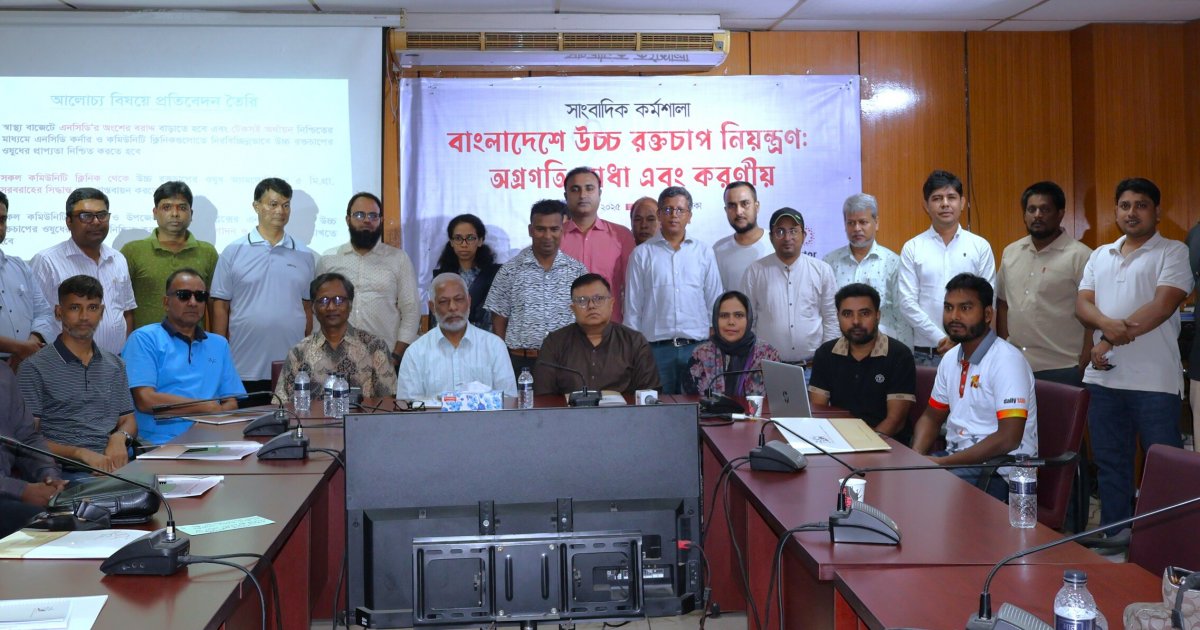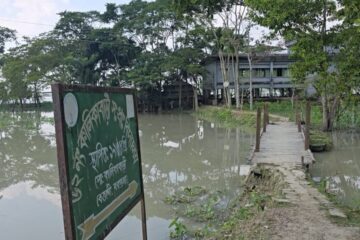Bangladesh has made notable strides in controlling hypertension, but experts warn current efforts remain insufficient to curb the growing burden of the disease.
The second Global Report on Hypertension by the World Health Organization (WHO) shows that the rate of hypertension control in some regions of Bangladesh rose from 15% in 2019 to 56% in 2025 — a significant improvement.
However, one-fourth of the population still suffers from hypertension, and ongoing initiatives are not enough to tackle the challenge. Experts stressed that an uninterrupted supply of anti-hypertensive medicines must be ensured at all Community Clinics and Upazila Health Complexes.
The remarks were made at a workshop for journalists titled “Hypertension Control in Bangladesh: Progress, Challenges and Way Forward”, held Monday at BMA Bhaban in Dhaka. The workshop was organized by research and advocacy organization Progga (Knowledge for Progress) with support from the Global Health Advocacy Incubator (GHAI). Twenty-three journalists from print, television, and online media participated.
Attending the workshop, Dr Muhammad Habibur Rahman, deputy director at the Directorate General of Health Services (DGHS), said: “We are experiencing certain budgetary and management constraints in providing medicines for hypertension and other non-communicable diseases (NCDs). However, we are hopeful that these issues will be resolved soon.”
Md Riad Arafin, deputy general manager (Sales and Marketing) at the Essential Drugs Company Limited (EDCL), added: “We always try to ensure that anti-hypertensive medicines are supplied on time to NCD corners and Community Clinics for people at the grassroots level, and we remain committed to continuing this effort.”
The WHO report highlighted that ensuring free anti-hypertensive medicine availability at the grassroots level is a key step toward controlling hypertension, and it called for continued investment in the sector for long-term sustainability.
Other participants included Reaz Ahmad, editor at Dhaka Tribune; Muhammad Ruhul Quddus, Bangladesh country lead of GHAI; and ABM Zubair, executive director at Progga. Progga’s Coordinator Sadia Galiba Prova delivered presentations on hypertension control.



